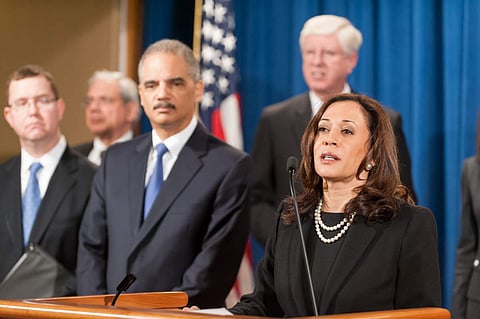

Seems like, even the judicial system is not free of gender bias, as claimed by a new research.
According to a study conducted by the Arizona State University, forceful closing arguments are perceived differently for two sexes. It affects attorney's effectiveness as well. In total, six attorneys with trial experience - three men and three women - performed identical reenactments of the closing argument for a psychology study. The study showed gender bias skews the way people perceive an attorney's effectiveness when expressing anger.
According to the study, male and female test viewers found the angry male attorneys to be commanding, powerful, competent and hirable. They found angry female attorneys to be shrill, hysterical, grating and ineffective. "A good attorney is expected to show traditionally male characteristics in court - anger, aggression, power. But what's happening is that men benefit from this, while we are penalizing women for showing these same characteristics," said Jessica Salerno, the lead researcher on the study.
"We watch so many courtroom dramas where lawyers are expressing emotion, and there are fireworks in the courtroom. People expect attorneys to express themselves this way. This expectation sets men up well for success, but for women it backfires."
Past studies had established that showing emotion in various situations hurts women while at the same time benefits men. However, these past studies were set in situations where emotion is unexpected, such as a business meeting.
Salerno and her team, which included Hannah J. Phalen, Rosa Reyes, and Nicholas J. Schweitzer, wanted to arrange a situation where emotion was expected. So, the research team gathered nearly 700 participants to watch videos of the actors delivering the closing argument. Participants shared their impressions of the attorneys, and whether or not they would hire them. "We asked the participants how angry they thought the actors were," Salerno said.
"Participants felt the men and women were similarly angry. But unfortunately, we did replicate the results found in other studies. The angry men were found to be more effective, and viewers wanted to hire them. This backfired for women. People thought the angry women were less effective, and they wanted to hire them less."
Additionally, women and men felt the same way, which Salerno said showed that this bias is operating at an implicit level. "We all grow up in the same culture," she said. "We are exposed to the same gender stereotypes. In the long term, this means that female attorneys may not be able to demonstrate the conviction and power people expect from men. This has unfortunate long-term implications for their careers and effectiveness with juries."
The study appears in the journal Law and Human Behavior.
